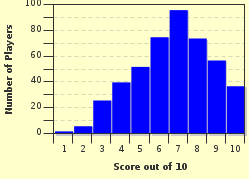Quiz Answer Key and Fun Facts
1. There are many branches of psychology. Which branch is the branch of psychology devoted to the study of changes in behavior and abilities over the course of development?
2. Child development is typically divided into three broad domains: Physical Development, Cognitive Development, and Emotional and Social Development.
3. Which period best describes "the prenatal period"?
4. When a child adds more of the same types of skills that they initially have, is this considered continuous or discontinuous development?
5. What does John Locke's view of "tabula rasa" refer to?
6. Which approach is Hall and Gesell associated with?
7. According to Berk (2009), children go through a series of stages where they confront conflicts between biological drives and social expectations. How the conflicts are resolved will determine the individual's ability to get along with others, learn, and to cope with anxiety. What perspective does this refer to?
8. What is the outermost layer of Bronfenbrenner's model consisting of cultural values, laws, customs, and resources?
9. In Erikson's psychosocial stages, the trust versus mistrust stage occurs at ages three to six years.
10. What is known as the ability to adapt effectively in the face of threats to development?
Source: Author
abbyolurin1
This quiz was reviewed by FunTrivia editor
crisw before going online.
Any errors found in FunTrivia content are routinely corrected through our feedback system.


